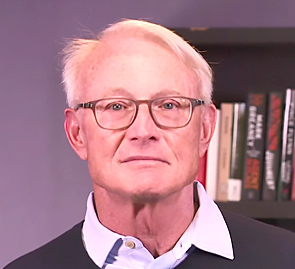Conference on Competitiveness
Keynote Speech<Summary>

This is Michael Porter addressing you from Harvard University. I am sorry that I was not able to travel to Japan this year for the 20th anniversary of the Porter Prize.
The Porter Prize has greatly helped to stimulate the Japanese economy and strengthen the competitiveness of Japanese industries. On this occasion of its 20th anniversary, I would like to express my sincere gratitude to the organizer of the prize, Hitotsubashi ICS, along with the sponsors, everyone involved in the evaluation and selection process, and my long-time colleague and friend, Professor Hirotaka Takeuchi.
The book I co-authored with Professor Takeuchi, titled "Can Japan Compete?" led to the creation of this prize. As you know, Japanese companies are the inventors of TQM and the Toyota Production System. For many years TQM helped maintain companies' competitiveness, but that competitive edge no longer exists. Japanese companies cannot compete solely on quality anymore. The only way for companies to remain competitive is to compete based not just on quality but innovation and distinctive strategies as well.
Established with the goal of stimulating competitiveness in Japanese companies, the Porter Prize evaluates the applicants based on their innovation and competitive strategies. As in previous years, we have some outstanding winners this year: Milbon, Rakuten Bank, Marugame Seimen of TORIDOLL Holdings, and Yo-Ho Brewing. Each company competes in its respective industry with its own unique approach, and all of them have abandoned the traditional TQM model. The winners are companies that have succeeded in innovation, adapted to the competitive environment, and reinvented themselves.
In the past, a company's results were tied first and foremost to shareholder value. Naturally, businesses need to use capital efficiently and be profitable, but profit alone is no longer sufficient. Today, the most effective way to compete is to compete for a purpose, and the truly meaningful purposes are those aimed at addressing social issues, social needs, and social disparities. This is not philanthropy or simple generosity, but the creation of competitive advantages. Companies can enhance their competitiveness, for example, by improving their energy efficiency, minimizing emissions, and cutting the costs associated with global warming mitigation measures. They can gain an edge in a whole new realm of competition and increase their profits by addressing social challenges that exist in all kinds of fields.
Today's consumers are aware that the goods and services they purchase have an impact on society. People prefer more to buy brands that are beneficial to the community than products that simply add to problems. They care about the environmental impact of the clothes they buy, and about the health and nutritional aspects of the food they consume. These changes in consumer behavior encourage companies to alter the way they compete. Companies need to engage with the community, commit to social responsibility, and address problems that affect people or hurt the quality of life. These are business opportunities, and such change is essential for companies to develop.
I am hopeful the Porter Prize will continue to have a great impact. I pray that by identifying and recognizing companies that approach competition with new and unique strategies, the prize will motivate companies to change the way they compete and continue to inspire and drive innovation in the years to come. I very much look forward to seeing more brilliant competitive strategies and innovations come to life, and to being able to join you next year in Japan.





